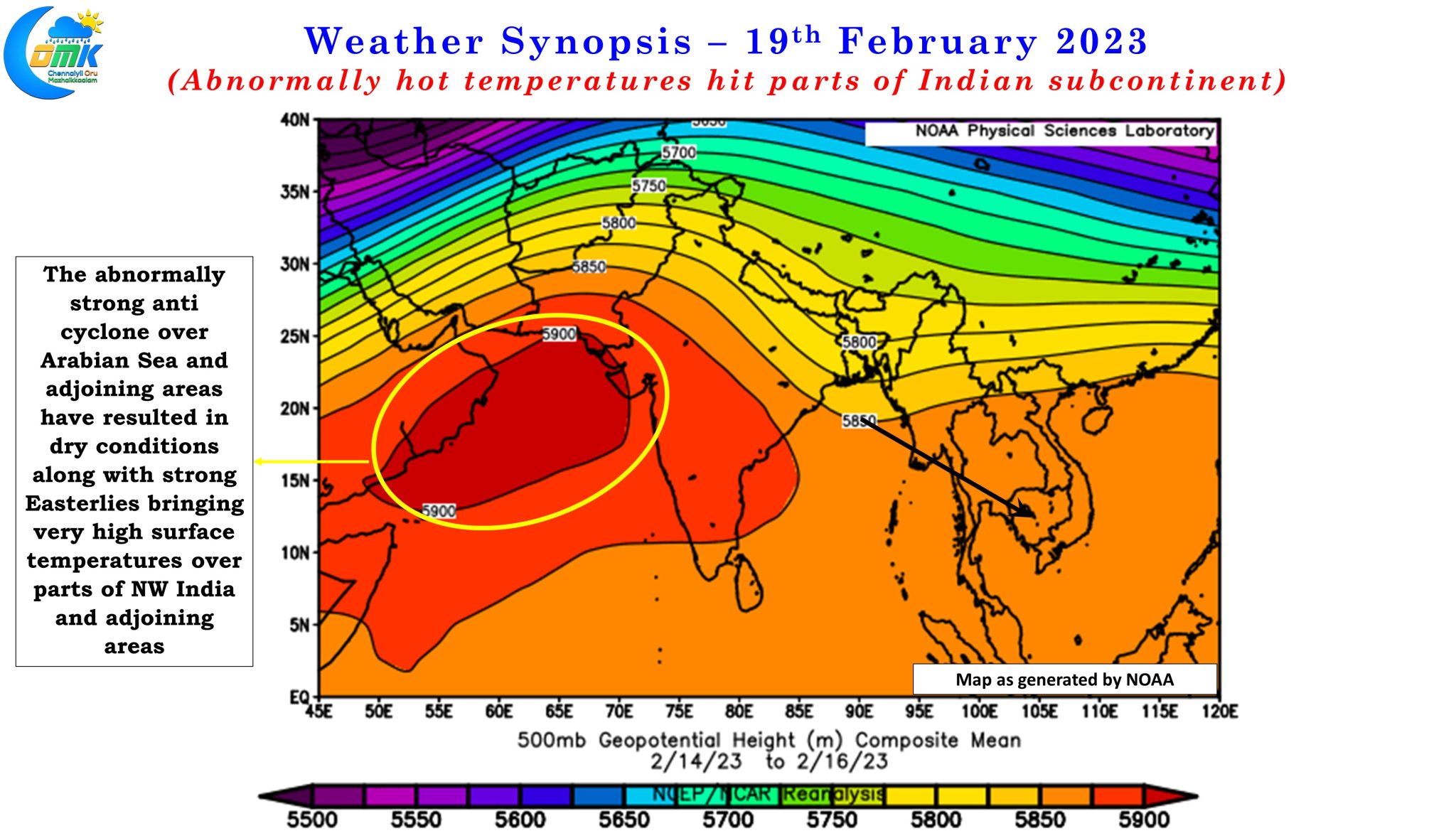The last few days have seen abnormally hot day time temperatures hit parts of the Indian sub continent along with adjoining areas of Pakistan and Iran under the influence of an abnormally strong anti cyclone sitting over Arabian Sea and adjoining areas. Consequent to the anti cyclone sitting over the region suppressed atmospheric conditions that has resulted in very dry weather has not only brought about abnormally hot days over the plains but warmer nights in the hills as well. On 16th February the IMD observatory at Bhuj, Gujarat, recorded 40.3°C to become the hottest recorded day during the month of February. Interestingly the last 3 days maximum temperature will all settle in the Top 3 all time hottest days during the month of February at Bhuj.
The IMD observatory at Shimla recorded a minimum temperature of 14.4°C yesterday, roughly 11°C above normal, was the warmest night recorded ever during the month of February, warmer by 0.2°C compared on 14.2°C recorded on 9th February 1993. Yesterday maximum temperature of 23.2°C was the hottest recorded day during the month of February surpassing the 22.6°C recorded 20th February 2006 effectively making yesterday the warmest day and night recorded ever during the month of February. Today’s minimum temperature of 14°C will also get into the Top 3 warmest nights during the month of February at Shimla.



While the arrival of a weak western disturbance over the next couple of days could disturb the abnormally strong anticyclone sitting near the Indian sub continent weather models do not indicate no immediate respite from the abnormally warm temperatures for Northwest India and adjoining areas though it may not be as high as the 8 to 10 degrees above normal seen currently over some of the places. Weather models are consistent average temperatures (day and night) is expected to stay a couple of degrees above normal for the next fortnight or so until possibly first week of March at the moment. Interestingly the east coast of Peninsular India is expected to stay cooler than normal with both days and nights being slightly cooler than normal indicating the modulating effect Easterlies have over places like Chennai on the coast.
